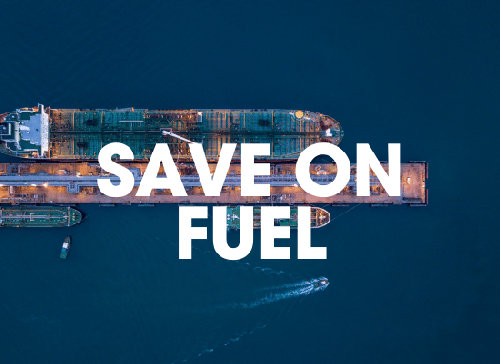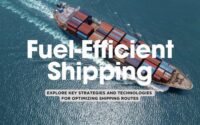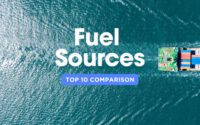Top Purchasing Strategies to Save on Fuel

In the competitive world of commercial shipping, managing operational costs effectively is crucial for maintaining profitability. One of the most significant expenses for shipping companies is fuel. With fluctuating prices and varying costs across different regions, finding strategies to purchase fuel at more affordable rates can lead to substantial savings and a stronger bottom line. This article explores a range of proven strategies that can help ship operators reduce their fuel expenditures through smarter purchasing practices, from hedging prices to leveraging technology.
* Please send feedback/suggestions to editor @ shipuniverse.com
| Strategy | Key Benefits | Potential Savings | Implementation Complexity | Ideal Conditions | Required Expertise |
|---|---|---|---|---|---|
| Fuel Hedging | Price stability and predictability | Varies; aimed at preventing price spikes | High | Volatile fuel markets | Deep understanding of financial markets |
| Bulk Buying and Cooperative Purchasing | Lower unit costs, reduced administrative expenses | 5-20%, depending on volume and market conditions | Low to Medium | Stable demand, large storage capacity | Basic negotiation skills |
| Fuel Contracts and Negotiations | Secures lower prices, provides predictable costs | Depends on negotiation; often 10-15% | Medium | Stable market conditions | Advanced negotiation skills, market knowledge |
| Port Selection and Bunkering | Cost savings by choosing low-cost ports | Can significantly vary by region | Low | Flexible routing, knowledge of regional fuel prices | Understanding of logistics and port fees |
| Seasonal Fuel Purchasing | Lower prices during off-peak seasons | 10-20% during off-peak times | Medium | Understanding of market cycles | Market trend analysis |
| Utilizing Fuel Brokers | Access to better pricing through expert negotiation | 5-15%, depending on broker effectiveness | Low | Large volume purchases | Brokerage services knowledge |
| Currency Exchange Considerations | Savings from favorable exchange rates | Varies with currency fluctuations | High | Significant currency exchange rate fluctuations | Understanding of forex markets |
| Technology in Fuel Purchasing | Efficiency and better prices through modern tools | 5-10%, enhanced by technology use | Medium to High | Access to advanced purchasing technologies | Technical proficiency in digital tools |
| Fuel Quality vs. Price Trade-offs | Optimal balance of cost and fuel quality | Cost-effective without compromising quality | Medium | Availability of quality testing resources | Knowledge of fuel specifications and testing |
| Government and Regional Policies | Advantageous pricing due to policies | Varies with policy incentives | Medium | Presence of supportive government policies | Understanding of regional and international regulations |
| Adjusting Purchase Timing Based on Market Predictions | Strategic buying at lower prices | Can vary widely based on accuracy of predictions | High | Dynamic market conditions | Advanced analytical skills, access to predictive tools |
Fuel Hedging Strategies
Understanding the Basics: Fuel hedging is a financial tactic used by shipping companies to lock in fuel prices at a predetermined rate over a specific period. This approach is typically executed through financial instruments such as futures, options, or swaps.
Benefits and Considerations: The primary advantage of fuel hedging is the ability to stabilize fuel costs, which protects businesses from sudden spikes in fuel prices. This predictability is crucial for budget management in the volatile shipping industry. However, it requires a solid understanding of financial markets because poor hedging decisions can lead to missed opportunities for savings if fuel prices decrease.
Bulk Buying and Cooperative Purchasing
Leveraging Buying Power: Bulk buying and cooperative purchasing involve acquiring large quantities of fuel or collaborating with other companies to purchase collectively. This strategy allows companies to leverage their buying power to negotiate better prices, gaining access to discounts typically reserved for larger purchase volumes.
Strategic Advantages: The primary benefit of this approach is the reduction in the cost per unit of fuel. Additionally, it can decrease the administrative expenses associated with multiple smaller transactions. For smaller operators, joining forces with others provides an opportunity to compete more effectively with larger entities in terms of pricing.
Fuel Contracts and Negotiations
Securing Favorable Terms: Long-term fuel contracts are agreements that fix or cap the price of fuel over an extended period. These contracts are vital for managing budget fluctuations due to fuel price volatility.
Flexibility and Protection: Effective negotiation of these contracts should focus on flexibility and cost-efficiency. It is essential to incorporate clauses that allow for adjustments in purchase volume and periodic price reviews, which can safeguard the interests of the shipping company against market downturns or unexpected changes in fuel usage patterns.
Port Selection and Bunkering
Choosing the Right Ports: The choice of port for bunkering (fueling) can significantly impact fuel costs. Prices can vary considerably between ports due to local supply and demand, taxes, and other regional factors.
Strategic Fueling: By strategically selecting ports that offer lower fuel prices and aligning these stops with the ship's route, companies can make substantial savings. Additionally, considering the operational flexibility and fuel storage capacity of a ship can allow for more cost-effective purchasing decisions at ports with cheaper fuel.
Seasonal Fuel Purchasing
Understanding Market Cycles: Fuel prices often exhibit seasonal patterns, fluctuating due to changes in demand, geopolitical events, and other economic factors. By understanding these cycles, companies can plan their fuel purchases during periods when prices are typically lower.
Maximizing Savings: Implementing a purchasing strategy that takes advantage of these seasonal variations requires careful planning and good timing. This approach can lead to considerable cost reductions over time, especially when combined with other strategies like bulk buying.
Utilizing Fuel Brokers
Brokerage Services: Fuel brokers specialize in purchasing fuel and can help companies secure better deals. They have extensive networks and knowledge of the fuel market, which can be invaluable in finding the most cost-effective suppliers.
Advantages of Using Brokers: Employing a broker can save time and resources for a shipping company by outsourcing the complex process of fuel procurement. Brokers can negotiate prices, handle logistics, and even assist with the legal aspects of fuel purchasing. This not only helps in getting competitive prices but also in ensuring that the fuel meets the required specifications and regulations.
Currency Exchange Considerations
Navigating Currency Fluctuations: Fuel prices can be significantly affected by currency exchange rates, especially when purchasing fuel in foreign ports. Monitoring and capitalizing on favorable exchange rates can lead to substantial cost savings.
Strategic Currency Management: Companies should consider hedging against currency risk or setting up multi-currency accounts to manage and mitigate the impact of currency fluctuations on fuel costs. This approach requires an understanding of financial markets and may involve working with financial experts.
Technology in Fuel Purchasing
Innovative Tools and Platforms: Modern technology, such as blockchain and AI-driven platforms, can revolutionize the way fuel is purchased. These technologies offer more transparent, efficient, and competitive fuel buying processes.
Benefits of Technology Integration: Utilizing these technologies can help predict fuel price trends, automate the purchasing process, and ensure that all transactions are secure and compliant with international standards. This not only helps in obtaining better prices but also in streamlining the procurement process.
Fuel Quality vs. Price Trade-offs
Assessing Fuel Quality: Cheaper fuel can sometimes be of lower quality, which might adversely affect engine performance and maintenance. It's crucial to assess the quality of fuel and not just focus on the price.
Quality Assurance: Implementing strict quality control measures and regular fuel testing can prevent potential engine problems and additional costs in the long run. This ensures that the fuel purchased, even at lower prices, meets the required standards and specifications for safe and efficient operation.
Government and Regional Policies
Leveraging Policy Benefits: Government policies and regional trade agreements can have significant impacts on fuel prices. For instance, subsidies, tax reliefs, or incentives for using certain types of fuels can create cost advantages that savvy operators can exploit.
Navigating Policy Landscapes: It’s crucial for companies to stay informed about relevant policies in the regions where they operate. Understanding these policies can help in strategic planning and purchasing, ensuring compliance and maximizing potential savings from governmental incentives.
Adjusting Purchase Timing Based on Market Predictions
Market Forecasting: Predictive analysis tools can forecast market trends, helping companies anticipate price movements. By understanding potential future shifts in fuel prices, companies can time their purchases to coincide with predicted price drops.
Implementing Flexible Purchasing Strategies: This strategy requires a dynamic approach to purchasing, where decisions are continuously adjusted based on the latest market predictions and data analyses. This flexibility can be crucial in capitalizing on unexpected market opportunities to reduce costs.
Navigating the complexities of fuel purchasing requires a strategic approach, informed decision-making, and sometimes, innovative thinking. By implementing the strategies outlined in this article, shipping companies can not only enjoy reduced fuel costs but also enhance their operational efficiency and financial stability. As the shipping industry continues to evolve, staying abreast of these methods and adapting to new opportunities will be key to achieving long-term success. Remember, the best strategy is one that aligns with your company’s specific needs and market conditions, ensuring that every voyage is as cost-effective as possible.

Do you have a Maritime Product or Service that may be of interest to Shipowners? Tell us about it here!
Do you have feedback or insights? Please reach out to editor @ shipuniverse.com



